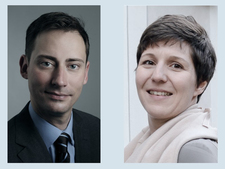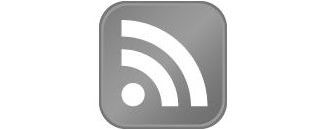-
Topics
subnavigation
Topics
Electromagnetic fields
- What are electromagnetic fields?
- Static and low-frequency fields
- Radiation protection relating to the expansion of the national grid
- High-frequency fields
- Radiation protection in mobile communication
Optical radiation
Ionising radiation
- What is ionising radiation?
- Radioactivity in the environment
- Applications in medicine
- Applications in daily life and in technology
- Effects
- What are the effects of radiation?
- Effects of selected radioactive materials
- Consequences of a radiation accident
- Cancer and leukaemia
- Genetic radiation effects
- Individual radiosensitivity
- Epidemiology of radiation-induced diseases
- Ionising radiation: positive effects?
- Risk estimation and assessment
- Radiation protection
- Nuclear accident management
- Service offers
-
The BfS
subnavigation
The BfS
- About us
- Science and research
- Laws and regulations
- BfS Topics in the Bundestag
- Links
Wild mushrooms in parts of Bavaria still contaminated
Year of issue 2017
Date 2017.09.26
Date 2017.09.26
More than three decades after the Chernobyl nuclear accident, several species of wild mushrooms in parts of Bavaria are still heavily contaminated with radioactive Caesium-137, as demonstrated by measurement results published by the Federal Office for Radiation Protection (Bundesamt für Strahlenschutz, BfS). The annually updated report provides information on the caesium-137 contamination for mushroom pickers. The additional radiation exposure from wild mushrooms is comparatively low, when consumed in normal quantities. There is a limit for wild mushrooms offered in the food trade.
This applies to a number of mushroom species, among others stinky knight and hygrophorus , grey knight, wood hedgehog red-brown bay boletus and umber-zoned ringless amanita, which may still have up to some thousands of Becquerels (Bq) Caesium-137 per kilogram. The highest levels of radiocaesium in wild mushrooms all over Germany are expected in the unusually highly contaminated small-sized areas in the Bavarian Forest, in the Donaumoos southwest of Ingolstadt and in the Mittenwald region. Clearly less depositions of caesium-137 were found in other regions such as the North of Germany where correspondingly lower levels are measured.
No health hazard associated with consumption of usual quantities
One single meal with more heavily contaminated wild mushrooms can contain more caesium-137 than consumers of food from agricultural production would ingest within one year. However, consuming usual quantities of self-collected mushrooms does not necessarily imply negative health consequences due to the content of radioactivity. Nevertheless, the Deutsche Gesellschaft für Ernährung (German Food Association) recommends also for other reasons to limit consumption of wild mushrooms to 250 grams per week because these may accumulated toxic heavy metals such as lead, mercury and cadmium.
Limit for German food trade protects from health hazards
Wild mushrooms exceeding the limit of 600 Becquerels per kilogram for radiocaesium are not allowed to be placed on the market in Germany. This limit was introduced after the Chernobyl reactor accident. Official controls of foodstuffs are carried out to make sure that the limit is observed. The Federal Office for Radiation Protection (Bundesamt für Strahlenschutz, Bfs) assumes that the contamination in all species of edible mushrooms will decrease continuously. However, there are very great variations in the radiocaesium content of a species from site to site: Even within smaller forest areas the differences are normally much greater than the mean decrease from one year to another.
State of 2017.09.26



